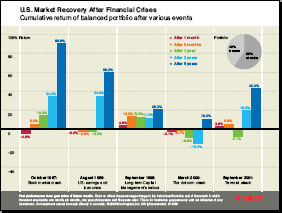
At times the book gets a little tedious and repetitive, however it provides a background to the subprime meltdown that just isn't available anywhere else. It fully blames Wall Street, for some reason leaving out the politicians that also allowed things to happen, but on par is an excellent read.
What you will read in this book will be insightful and will completely piss you off. The characters that walk off with hundreds of milllions of dollars while completely ruining our economy and totally screwing over the little guy are not in jail and at this point are not even targets of any prosecution. The shadow banking industry (or non-banking industry) that arose and went unregulated makes no sense to the average person - why? The average person knows that if you make loans to people with no ability to pay them back and a history of not paying back debts - you are going to have a lot of defaults. Wise is that the school teachers, plumbers and construction workers that I've conversed with everyday for the past seven years understood this and Hubris Street didn't?
My biggest regret is not fully understanding what was going on. After all, I lived in the middle of all of it - Orange County, while it was happening. Every day I marveled at what I saw. 125% loans, Option Arm loans, Stated Income Loans, loans to people who had no job and no income (for $600,000). I called the housing bubble and told people not to buy homes unless they had a ten year time frame. I figured a 20% drop is around the corner....little did I know that things were even worse than I could have ever imagined. Now, in some places (including where I live in Murrieta) prices have dropped more than 50% from their highpoint. The market was flooded with easy money that was lent to people who could never pay it back and it created a huge false demand for real estate that drove prices up to a bubble point - creating victims of the people who COULD afford the homes they bought.
This will take awhile to unwind and will lead to needed regulation. However, in all likelihood the regulation will be written poorly and hurt any recovery rather than help. In the meantime, Stanley O'Neal, Angelo Mozilla, Roland Arnall, Robert Cole, Ed Gotschall, Steven Holder, Davide Loeb, Brad Morrice and many, many others are cozy in their mansions with bank accounts in the millions (some in the hundreds of millions and even billions) when they should be in prison (with the exception of Roland Arnall who died of cancer after serving as an ambassador).
Don't get me wrong, I don't begrudge people for making money, even lots of money. What bothers me is that these people were and are crooks. They helped to create the current mess and are not being held to account. There is something wrong with that.
Scott Dauenhauer CFP, MSFP, AIF

























